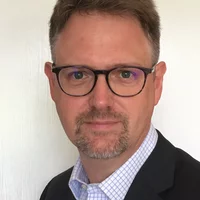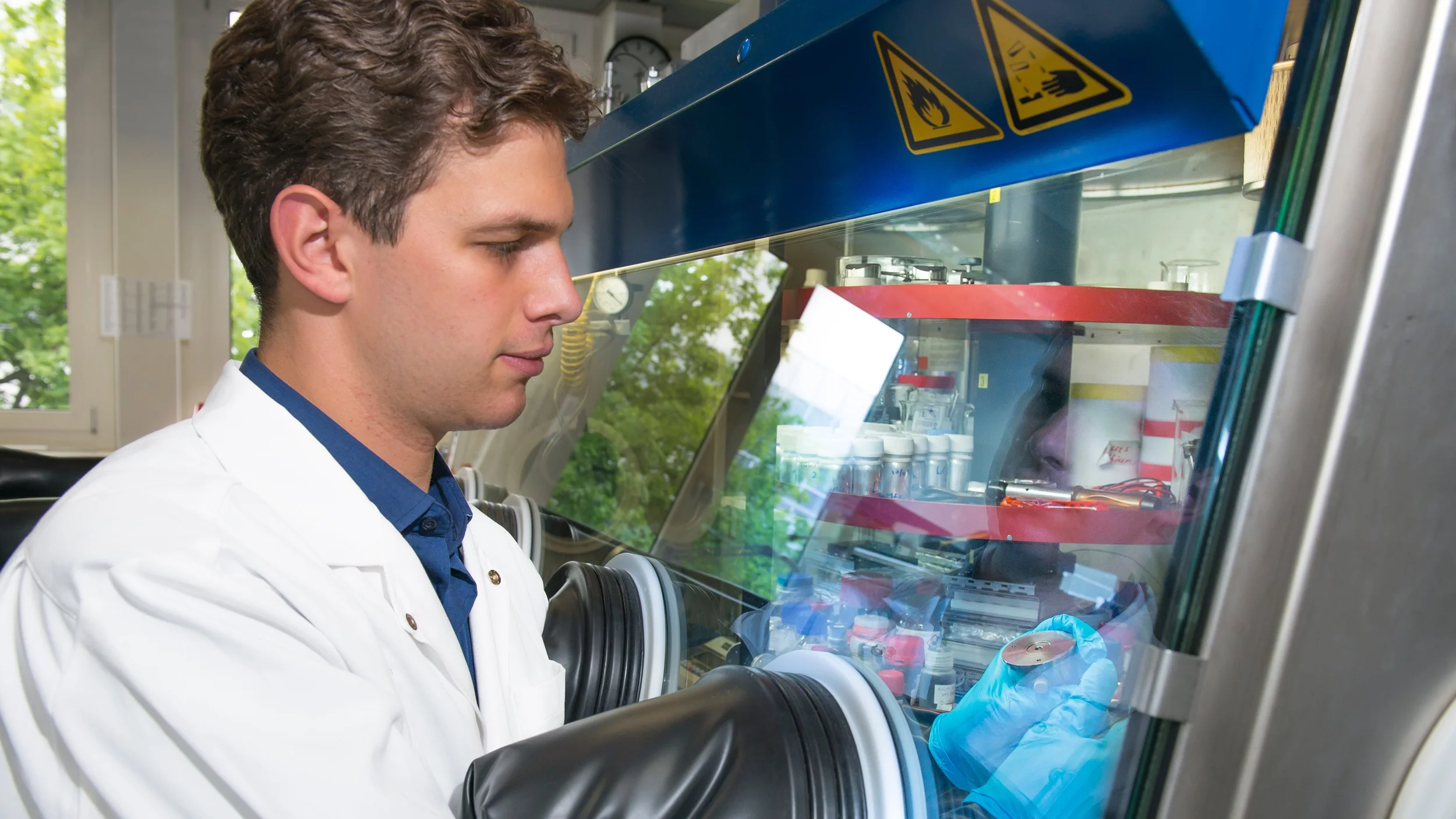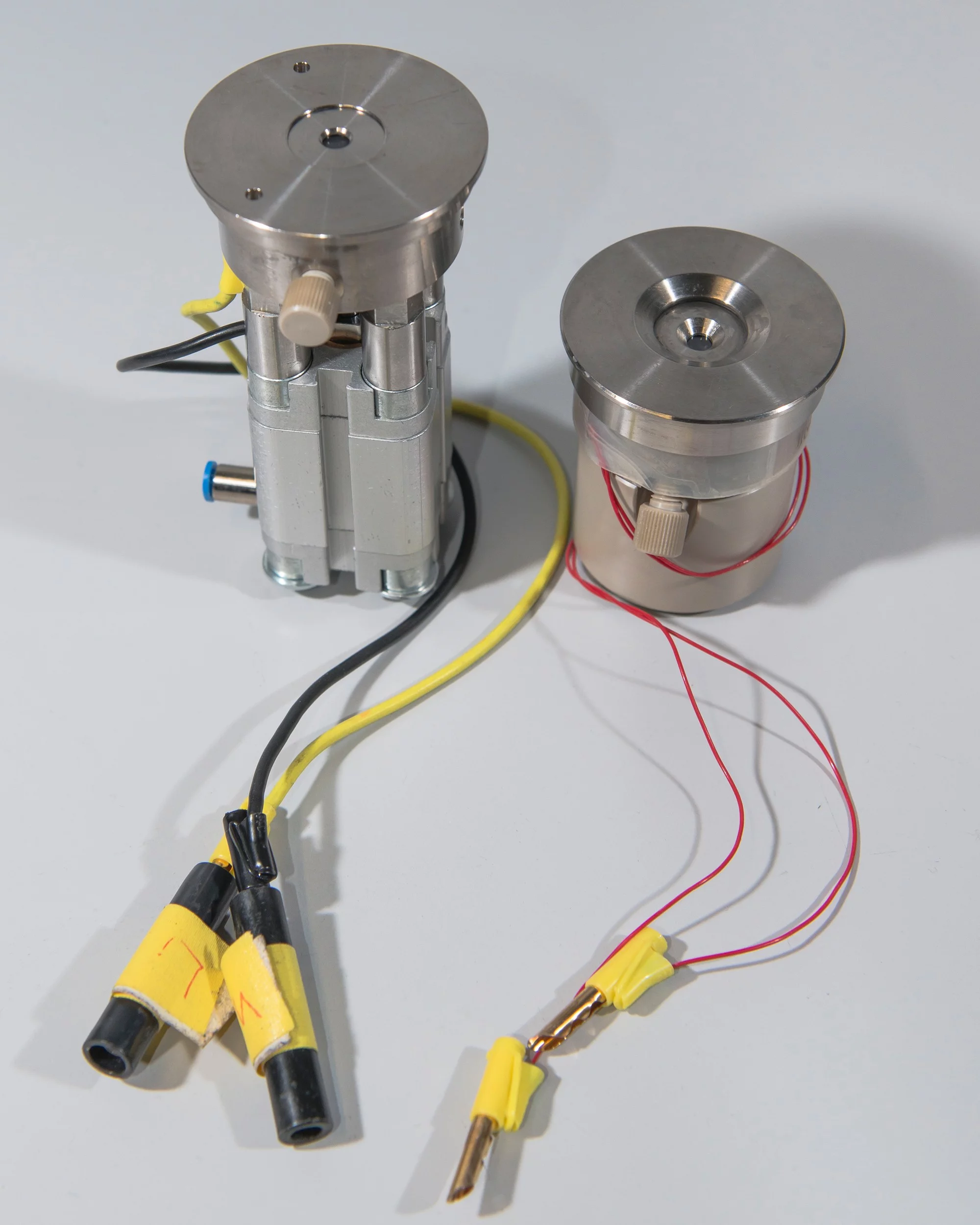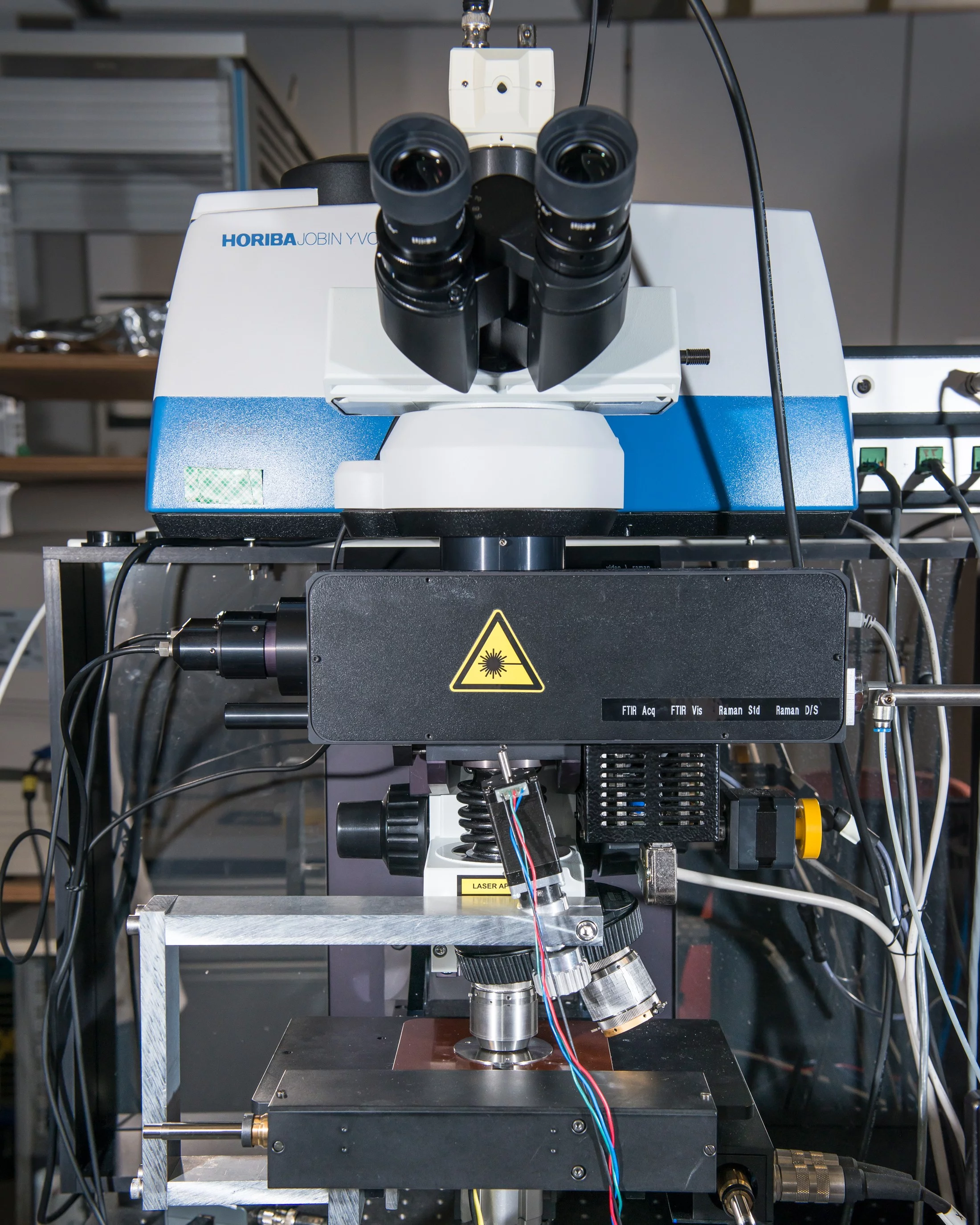Portrait of PSI doctoral student Patrick Lanz
Patrick Lanz already discovered a fascination with the world of science and technology during his school days. As an electrical engineer, his father had a decent selection of electronics sets for him to tinker with. However, the young Patrick did not merely content himself with remote-controlled cars. He set about systematically disassembling his toys in a quest to find out how they worked. Later, Lanz also began opening small batteries because he wanted to understand “what went on inside” – probably the first step on the path to his present role as a battery researcher.
Gunpowder – homemade
At some point during his time at grammar school, Lanz discovered chemistry. He decided to mix his own gunpowder homemade fireworks and actually displayed the necessary nous to get his hands on the ingredients for his explosive cocktail. “All you need to make gunpowder is charcoal, sulphur and saltpetre,” explains Lanz. “You can buy charcoal at the supermarket, where you normally get it for barbecues; you just have to grind it up when making gunpowder. And I already had some sulphur in my own chemistry set at home. It proved a lot trickier to get hold of some saltpetre. You can buy it from every chemist and every chemist knows exactly what you can do with the stuff: turn it into gunpowder. And the chemist could immediately read what I was up to in my boyish eyes. When it dawned on me that saltpetre is also used to preserve ham, however, I had a perfect excuse up my sleeve – and got my third gunpowder ingredient.”
So it is hardly surprising that Lanz opted for a degree in chemistry after leaving school. He enrolled at ETH Zurich and soon realised that he had made the right choice. Lanz was eager to have his first whiff of foreign air so applied for a semester abroad at Imperial College London, where he immersed himself in fuel cell research for the first time. Suddenly, Lanz had managed to combine his two main childhood interests, electrical engineering and chemistry. “Even back then, I realised that I didn’t want to work in organic chemistry like most other chemistry graduates, where they primarily synthesise new substances in long, drawn-out series of experiments – extremely valuable work, but I had a more varied research topic in mind for me and electrochemistry fitted the bill.”
Battery electrodes with less cobalt
So Lanz remained faithful to electrochemistry. At PSI, he specialised in battery research in both his Master’s dissertation and doctoral thesis, which he is now on the verge of completing. He has been studying a new material for electrodes in lithium-ion batteries, a material that is supposed to render these batteries more efficient and cheaper to make. “The metal cobalt is often incorporated into the positive electrodes of lithium-ion batteries. But cobalt is very expensive and toxic for the environment, which is why many research projects are currently underway all over the world with the aim of finding a substitute for cobalt as an electrode material. The metals nickel and manganese are the primary candidates: combined with cobalt, they can even increase storage capacities per kilogramme while reducing the costs and alleviating the environmental concerns,” explains Lanz.
Lanz developed a technique that involved using two microscopy methods often applied in battery research simultaneously and in real time: infrared and Raman spectroscopy. Each of these techniques affords different insights into the structure of the electrode material. If applied in real time, corresponding changes to the material structure can be observed while the battery is charging and emptying. These changes are a telling indication of what happens in the battery during charging cycles – and only once you understand such processes can you improve the electrode material specifically. “Infrared and Raman spectroscopy complement each other well,” explains Lanz. “Both methods are able to display the vibrations of the atoms in a material, but using Raman you can see vibrations that you can’t with infrared and vice versa. Combining the two techniques thus gives you a more complete picture of the material in question.” Moreover, the measurements using the apparatus he constructed can run fully automatically and in real time. “I built a sort of robot with the help of the technicians in the Electrochemistry Laboratory,” beams Lanz with visible pride.
Practical relevance and a love of languages
What Lanz especially likes about his work at PSI is the close ties to practice and the contact with researchers from industry. “I have been collaborating closely with scientists from a major chemistry company. It’s a real plus to see how they always react to every new idea with one eye on its practical usefulness. And yet there is always room for creativity,” he stresses.
And as if chemistry wasn’t challenging enough for him, Lanz has a special kind of intellectual pastime when he isn’t working: “I have always been interested in languages and starting learning Chinese a few semesters ago,” he explains enthusiastically. Can he already say a few sentences? “Yes, but the learning curve isn’t particularly steep for Chinese at first. But I enjoy learning,” says Lanz, brimming with confidence, and you can almost read his mind: if I stick at it, I’ll crack the most difficult language of all, too. At any rate, he has already achieved a great deal in the language of chemistry.
Contact
Patrick Lanz
Electrochemistry Laboratory
Paul Scherrer Institute PSI
+41 56 310 24 74
patrick.lanz@psi.ch
Additional information
Patrick Lanz is writing his dissertation in the electrochemical storage section of the Electrochemistry Laboratory at the Paul Scherrer Institute. The section is devoted to rechargeable batteries, especially with lithium-based systems. One aim of the research is to improve the energy density, performance density and lifespan of the batteries by optimising the battery materials. With this in mind, novel methods are developed that enable the batteries to be studied in situ, i.e. during the charging cycles. Moreover, research is conducted into new materials with promising properties for the batteries of the future.



